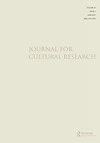通过图片讲述故事:2019年欧洲大选期间,领导人如何在脸书上管理视觉交流
IF 0.6
Q1 CULTURAL STUDIES
引用次数: 0
摘要
在当代民主国家,政治领导人的形象对其选举吸引力至关重要,然而,对形象投射的研究主要基于文本信息,往往破坏了照片、表情包和明信片等视觉内容。这项研究探讨了民粹主义领导人在跨国背景下通过Facebook上的视觉形象投射,目的是验证政治家是否使用图像来促进他们的政治行动,或者他们是否实施了更复杂的自我品牌和个性化策略。该分析以2019年欧洲议会选举的竞选活动为中心,对意大利的马泰奥·萨尔维尼、奥地利的海因茨-克里斯蒂安·施特拉赫、法国的马琳·勒庞、德国的爱丽丝·魏德尔等4名加入欧洲议会认同与民主集团的领导人进行了比较。根据我们的分析,领导人对Facebook上传播的图片的使用出现了重大差异。事实上,他们中的一些人几乎只传播与他们的竞选活动严格相关的图像,而另一些人则按照恐吓的模式寻求与选民的真正认同。本文章由计算机程序翻译,如有差异,请以英文原文为准。
Storytelling through images: how leaders managed their visual communication on Facebook during the 2019 European election campaign
ABSTRACT In contemporary democracies, the image that political leaders project is of central importance to their electoral appeal, however, studies of image projection have mainly been based on textual messages, undermining often visual content such as photos, memes and postcards. This study explores populist leaders image projection through visuals on Facebook in a cross-national context, with the aim of verifying if politicians use images to promote their political action or if they instead implement more complex strategies of self-branding and personalisation. The analysis focuses on the election campaign period for the 2019 European elections and proposes a comparison between four leaders that joined the European Parliament’s Group of Identity and Democracy, namely Matteo Salvini for Italy, Heinz-Christian Strache for Austria, Marine Le Pen for France and Alice Weidel for Germany. According to our analysis, important differences emerge in the use that leaders make of the images disseminated on Facebook. Some of them, in fact, disseminate almost exclusively images that are strictly related to their electoral campaign, while others seek a true identification with their voters, following the pattern of intimization.
求助全文
通过发布文献求助,成功后即可免费获取论文全文。
去求助
来源期刊

Journal for Cultural Research
CULTURAL STUDIES-
CiteScore
1.40
自引率
0.00%
发文量
23
期刊介绍:
JouJournal for Cultural Research is an international journal, based in Lancaster University"s Institute for Cultural Research. It is interested in essays concerned with the conjuncture between culture and the many domains and practices in relation to which it is usually defined, including, for example, media, politics, technology, economics, society, art and the sacred. Culture is no longer, if it ever was, singular. It denotes a shifting multiplicity of signifying practices and value systems that provide a potentially infinite resource of academic critique, investigation and ethnographic or market research into cultural difference, cultural autonomy, cultural emancipation and the cultural aspects of power.
 求助内容:
求助内容: 应助结果提醒方式:
应助结果提醒方式:


